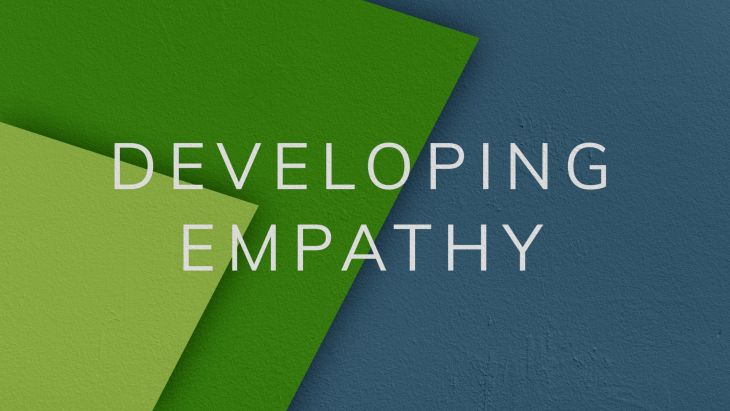Developing Empathy

What if I was bold enough to say that developing empathy is the most crucial skill that any creative team can continue to grow. Would you agree?
Too comfortable to care?
Straight off the bat I'll be bold and try to explain why I think developing empathy is so important.
It may be a crude analogy, but let's imagine you're creating a mass consumer product. You're aspiring for your product to hit a broad range of demographics, be accessible and have a widespread appeal. And crucially, you want your customers to part with money.
If no one on your team has ever gone through a period of their life where they have really struggled with their finances, then you may find it challenging to get that product right.
If your understanding of parting with £10 is very different from the majority of your customers, then you are going to have to work extra hard to develop the necessary empathy.
Getting emotional
Empathy's definition is: "the ability to understand and share the feelings of another".
For some, the very subject of empathy may feel obvious. Yet, my experience is that teams often overlook the emotional side of their delivery. Many organisations, for good reasons, focus on a systematic and pragmatic approach to their output. And although I would also champion the need for proper process and a discipline in creativity, we need to be careful not to overlook the emotional side.
My argument for keeping an eye on the emotion in our products is that as 'creators' we are usually creating for others. Very rarely are our endeavours isolated to be self-absorbed or even used/enjoyed only by our team.
Like many, we like to talk about delighting our clients and their customers. Yet, we cannot delight anyone without understanding the feelings and emotions that will get us there.
If we focus only on the process, we will deliver for our clients. It will tick the box. But it won't delight.
I'd argue that we can achieve both by focusing on both.
How we develop empathy
I would love to be able to write something philosophical and inspiring on this. But I could never outdo Brene Brown’s message on the subject. This video explains empathy well.
In the video she references Professor Theresa Wiseman of Southampton University's four attributes of empathy:
- See the world as others see it
- (Be) Non-Judgemental
- Understand another's feelings
- Communicate the understanding
Applying empathy
As with all principles, values and missions, their value is in how we execute them. How we apply this principle is how we can measure its meaningfulness and impact on our work.
In ourselves
Empathy is very closely tied with humility. And that's because being aware of who we are, as well as who we are not, enables us to understand and be confident in the personal context we bring to our work. Learning more about ourselves (as objectively as possible) allows us to know more about the life experiences, thoughts and feelings that we lack and therefore can learn to understand in others.
In our teams
There is a propensity in our industry to drift towards homogenous tribes. By tribes, I mean the people that you relate to and from which you are drawing input, inspiration and creativity.
Homogenous tribes are dangerous for developing empathy as they reduce our collective life experiences and viewpoints. Wherever possible, we should look to resist this drift and recruit and work with people with diverse backgrounds.
In our work
I'm a massive believer in user testing. It is the best opportunity to see real customers interact with your products. I've worked on many different types of projects and continuously see each product benefit from the viewpoint of fresh eyes. We get jaded by our views and spending too long 'under the hood'. Bringing in a new opinion; whether that's for a musical composition, a UI design or a piece of artwork keeps our perspective on point.
The bottom line
Understanding the feelings of those that will be consuming our creative output is crucial to producing compelling work.
Further reading
For those leading teams, I'd recommend Simon Sinek's talk on understanding empathy.
(This post is part of a series exploring the principles that have helped shape the creative teams I have worked with, as well as myself).
Looking for something else?
Search over 450 blog posts from our team
Want to hear more?
Subscribe to our monthly digest of blogs to stay in the loop and come with us on our journey to make things better!

